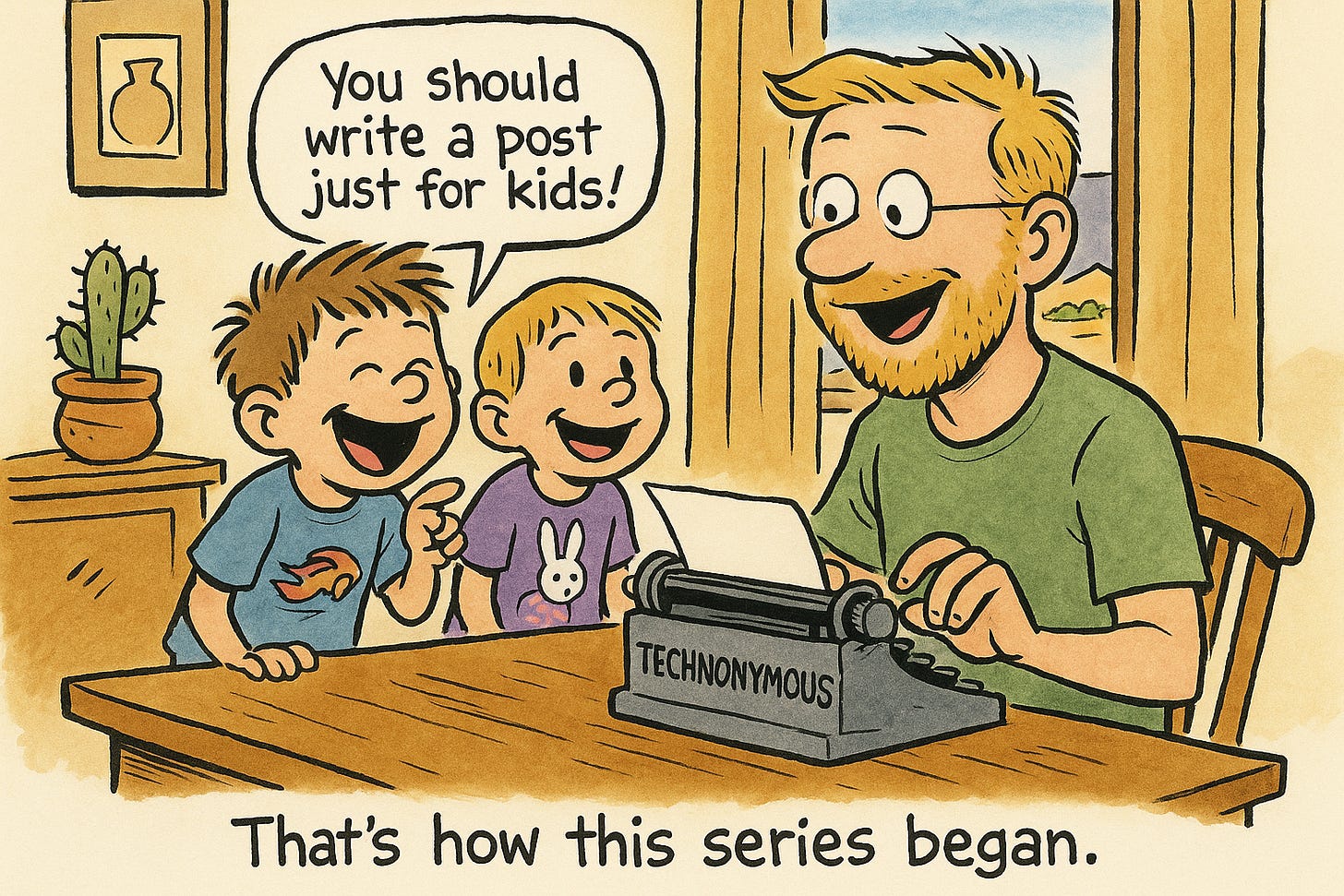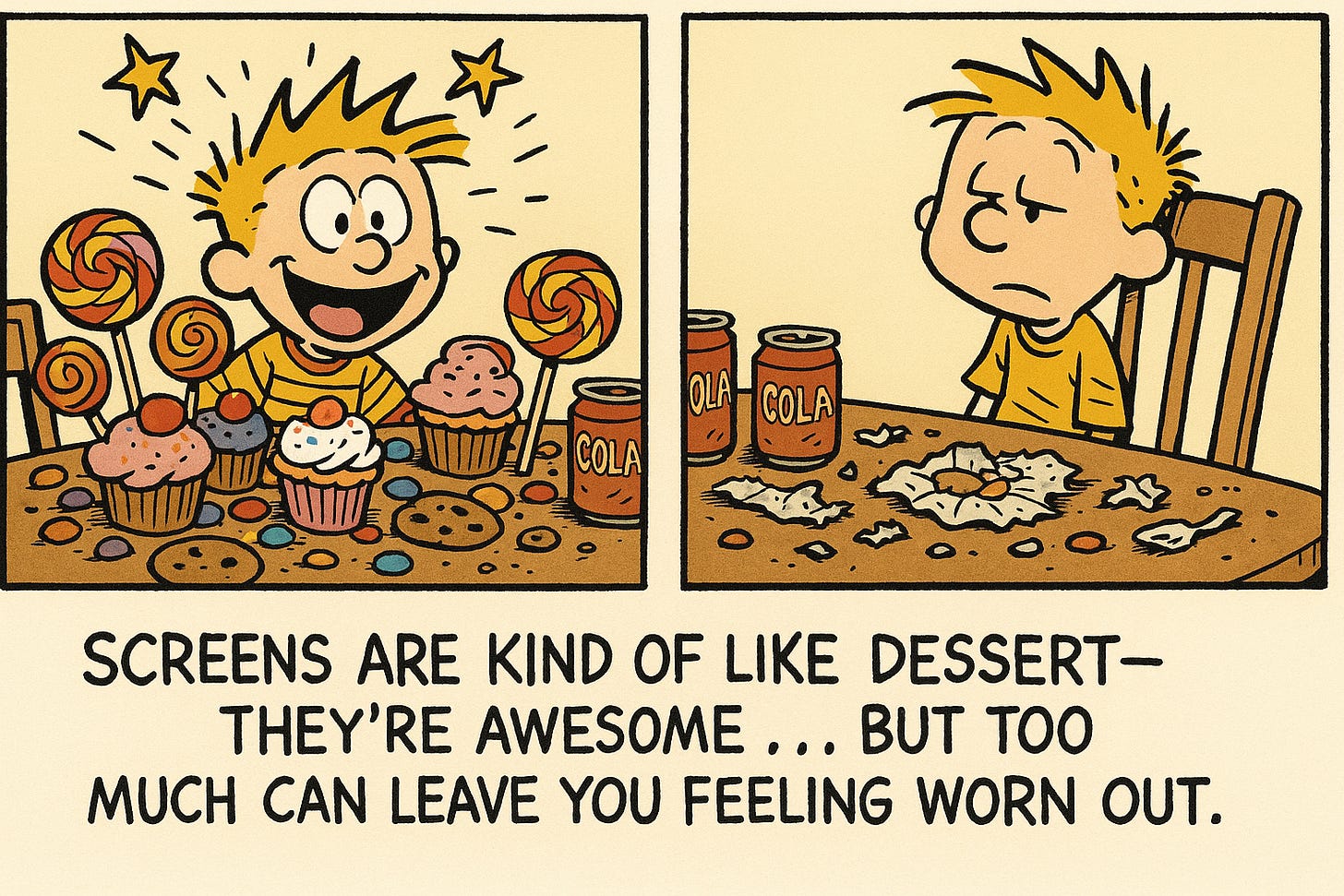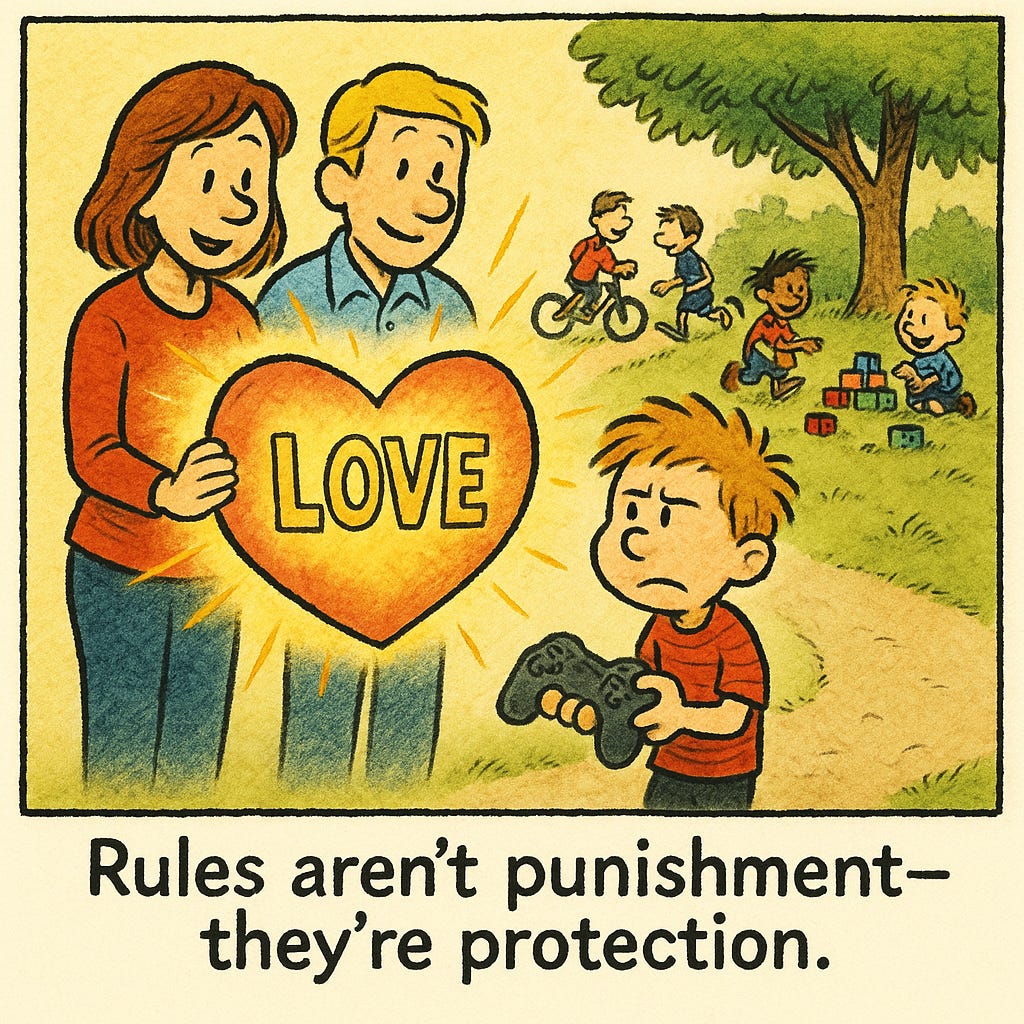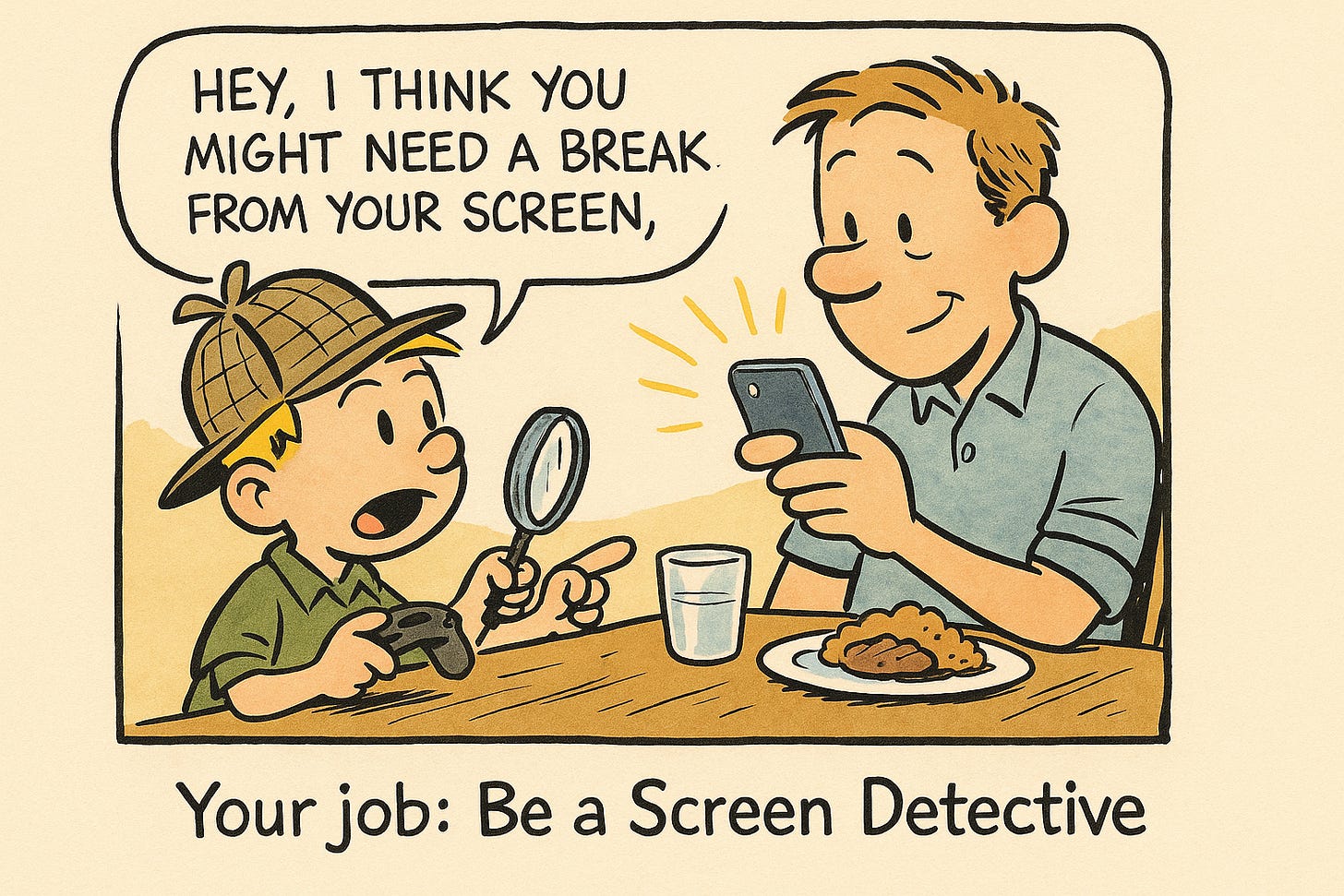For Kids Only: Why there are so many rules around screens
(It’s because your parents love you a lot!)
(Parents: this is the first in a series that I’m writing for you to share with your kids, so please either read it to them or let them read it, and let me know what they think!)
Hi there! I’m Sam, and I write a blog called Technonymous. I spend a lot of time studying how technology changes the way our brains work.
One day I was reading an article I wrote to my boys, and they said, “Dad, you need to write a post just for kids so they know parents aren’t just being mean!”
So here it is—the first post in a series just for you. Think of it as a behind-the-scenes look at why your parents set screen rules, and some of the science of how screens affect your brain and body.
Why parents even care about screen rules
Here’s the deal: if parents wanted the easy way out, they’d let you use screens nonstop. No limits, no arguments. But they don’t. Why? Because they see things most kids don’t notice yet:
Your brain is still under construction. Scientists call this “neuroplasticity.” It means your brain cells are wiring together every time you learn something new. Too much passive screen time can mess with how those connections form, especially in areas for focus, memory, and self-control.
Screens are sneaky. Games, apps, and videos are designed using psychology tricks (like rewards, points, and flashing colors) to keep you hooked. This is called the “dopamine loop”—your brain gets a tiny hit of the “feel-good” chemical dopamine every time you scroll or win, and then it wants more.
Balance builds stronger brains. Physical play, reading, sports, and creative stuff light up parts of your brain that screens don’t. Kids who mix screen time with real-world challenges actually end up with better focus and problem-solving skills.
The “fast food” brain trap
Think about food: a candy bar gives you quick energy, but then you crash. Real meals keep you going longer. Screens can be the same way. Fast, exciting, and fun—but not always filling.
Too much screen time can leave your brain feeling:
Tired (blue light messes with your sleep cycle).
Cranky (dopamine spikes can make you irritable).
Restless (you get used to constant stimulation, so quiet moments feel boring).
That’s why parents step in—they’re helping you avoid the sugar-rush-and-crash pattern, but with your brain.
Love, not punishment
It might feel unfair when your parents say “no more screens.” But rules aren’t about punishment. They’re about protection. Your parents are guarding something you can’t replace: a growing, flexible brain that will shape who you are for the rest of your life.
And here’s the big secret: they’d rather fight with you now than see you struggle later with focus, sleep, or mood. That’s love.
Your Job: Be a Screen Detective
Here’s something most kids don’t know—you can actually help your parents, too.
Adults get sucked into screens just like kids do. They might tell you “put the phone down,” but then spend 20 minutes scrolling through work emails or watching videos themselves. That’s called being a hypocrite (saying one thing but doing another). My boys are really good at letting me know when I’m being a hypocrite, and it helps me do better!
Your job: Be a Screen Detective.
If you notice your parent glued to their phone at dinner, politely say: “Hey, I think you might need a break from your screen, too.”
If they’re looking at their phone instead of listening to you, try: “Can I get your eyes, not just your ears?”
Parents might not love being called out—but trust me, deep down, they’ll respect you for noticing and appreciate your help. Technology rules should go both ways, and you can help them live by the same balance they want for you. None of us parents are perfect, but we’re all trying to do the very best we can for you, because we love you very much!
What’s next
In the next post, we’ll talk about your first Kid Superpower: Sleep.
Scientists have proven that light from screens, especially blue light, tricks your brain into thinking it’s still daytime. That blocks melatonin, the hormone that makes you feel sleepy. Without it, you stay wired when you should be winding down.
Sleep isn’t just “rest.” It’s when your brain cleans out waste, stores memories, and recharges. Protecting sleep is one of the most powerful things you can do as a kid.
👉 For now, remember: screen rules = brain protection = love. And sometimes, your parents need reminders about that, too.





